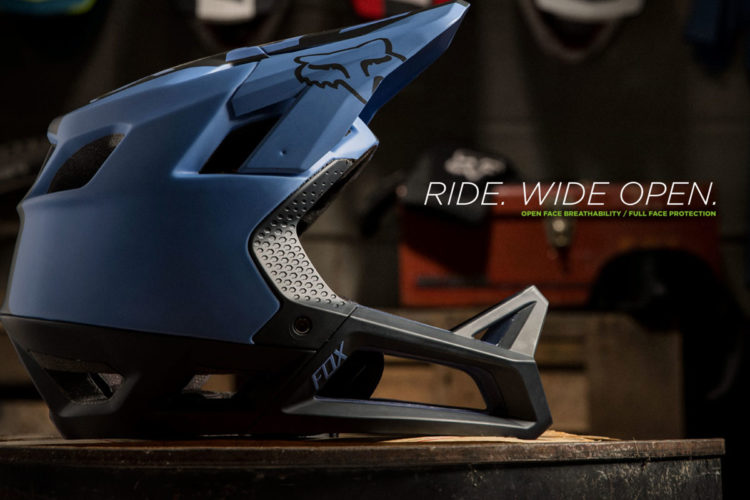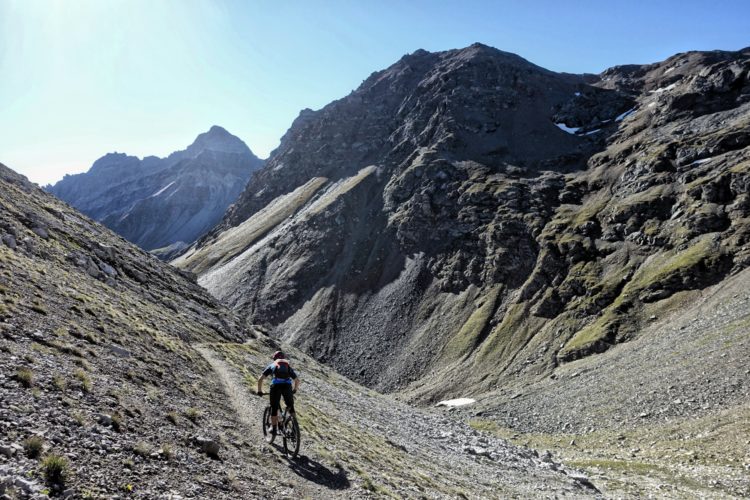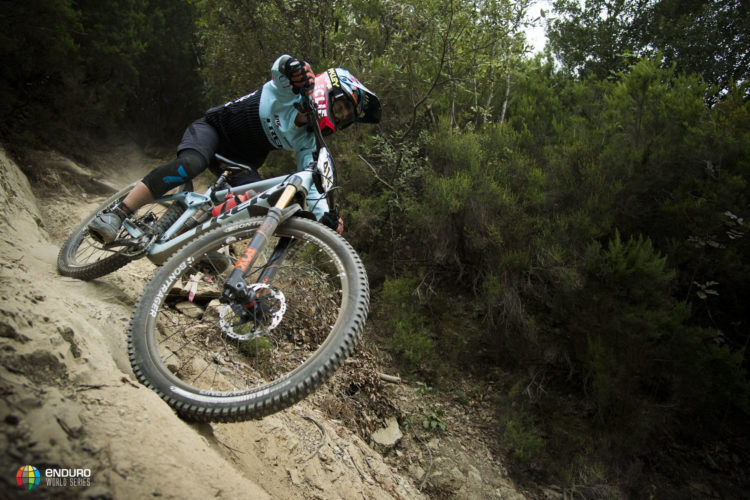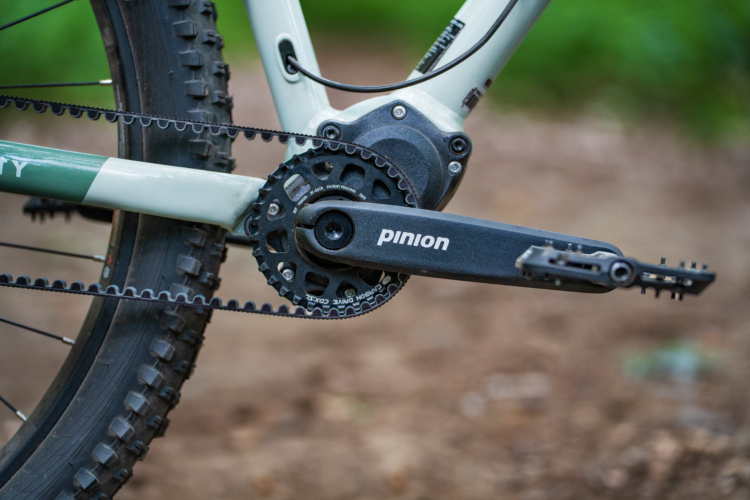At the Singletracks confab back in August I got a chance to ride two different bikes on back-to-back days along some of the most challenging trails in Colorado. A few weeks ago I shared my review of the first bike, the Trek Remedy 8, and today I’m ready to talk about my second test bike, the Kona Process 134 DL. I pedaled the Process 134 up from 9,200 feet to 12,600 feet, and then down from 14,100 feet to 7,000 feet over the course of two days, and really got a great sense of what this bike is capable of.
The Bike
The Process 134 DL is Kona’s enduro rig with 140mm of travel up front and 134mm of travel in the rear. I tested the 2014 version, graciously loaned by Absolute Bikes in Salida, which features a Rock Shox Revelation fork and a Monarch RT rear shock. The latest version of the Process 134 DL upgrades the Revelation to a Pike, and though I personally loved the Revelation on this bike, I know many riders will be stoked about the upgrade.
The frame is butted and built using 6061 aluminum. With its Rocker Independent Suspension system, the Process 134 frame is designed to be both “compact and low-slung on the frame,” while balancing climbing efficiency with descending performance. The Process 134 features a slightly steeper 68° head tube angle compared to the 67° angle on the Trek Remedy I tested the day before. The frame also features a couple of ports for internal cable routing.
The Process 134 DL rolls on 27.5″ wheels, and though I typically prefer 29ers, the wheel size on this bike felt completely natural. In fact, I preferred the way the Process 134 rode compared to the 29er Trek Remedy I tested earlier.
My test rig featured a 2×10 XT drivetrain, SLX hydraulic disc brakes, Shimano SLX hubs (15mm QR front, 142x12mm rear), and WTB rims. Most importantly, the Process 134 DL ships with a KS Super Natural dropper seat post and a beefy, 2.4″ Maxxis Ardent tire in the rear, for a very capable descending package right out of the box. A Kona alloy bar, grips, and stem, along with a WTB volt saddle, round out the package.
Overall, the weight on this build is… not light. We weighed this bike and the Trek Remedy 8 I tested, and found both were somewhere in the neighborhood of 32 pounds (34 pounds with tools). However, as I was to soon find out, the Process 134 DL felt much lighter on the trail.
On the Trail
On my first day of testing the Kona Process 134 DL we picked a doozy of a route: pedaling up more than 3,400 feet in just under 9 miles, then descending back down the other side of the mountain. Immediately the Kona felt comfortable, though at times a bit wandery due to a combination of the short 40mm stem, wide bars, and 68° head tube angle. Still, the front end felt light, and I quickly settled into the climb as we made our way up the mountain.
I won’t lie: there was some pedal bob in both the front and rear suspension, but not enough to really concern me. I suspect with a little tuning, even the minor amount of feedback I experienced could be mostly (though obviously not entirely) tuned out. I made it to the top of the climb toward the head of the pack, so clearly the Process 134 didn’t slow me down.
Even as the trail turned steeper toward the top of Canyon Creek, I found I had all the gears I needed with the 2×10 drivetrain. Only once the trail turned its steepest and rockiest did I need to dismount and push–but at this point, everyone else was doing the same thing too.

Coming back down the mountain was a thrill aboard the Process 134. I quickly lowered my dropper post and tried to focus on the above-treeline singletrack rut in front of me. There were times when frankly I didn’t trust myself through the steep–and at times, rocky–terrain, but the Process 134 kept its tires firmly planted on the ground and provided what I can only describe as an ultra-plush ride. Through slightly mellower flow sections this bike absolutely purred–one of my best descents of all time!
I also had a chance to ride the Process 134 DL down Pikes Peak, with our shuttle ride beginning at 14,100 feet above sea level (and 7,000 feet above town, where we would finish the ride). The first couple thousand feet of descending involved tight, rocky switchbacks, and the Process 134 proved itself to be every bit as nimble as the marmots we saw darting underneath and between boulders.

Both the front and rear tires on the Process 134 DL proved to be excellent choices for the trails we rode in Colorado. I’m obsessed with wide tires, and the 2.4″ Ardent in the rear, while not quite in “plus” territory, is the best I could have hoped to have through trenchy, decomposed granite sections. I found excellent control in the front as well through the descents, thanks to the slightly narrower 2.3″ Geax Sturdy tire (unofficial spec), but even more so thanks to the dialed short stem/wide bar combo. This was my first time riding a Geax Sturdy tire and it performed very well.
About 2/3 of the way down Pikes Peak I felt my front brake starting to fade. After a particularly steep section I stopped to let things cool down a bit but once I got going again, I noticed my power starting to fade in the rear as well. The brakes weren’t sounding right at this point, and I thought for sure I had eaten through my pads entirely. It turns out I had glazed both pads pretty good due to my white-knuckle, kung-fu grip on the brake levers all the way down. At the bottom of the descent, but before riding back to John’s house, Aaron used some quick thinking and scuffed the pads up on a patch of concrete–good as new!
The Process 134 DL proved to be a 5-star bike on both the Canyon Creek and Pikes Peak descents thanks to its plush suspension setup and excellent component choices. As far as climbing goes, I’d rate this bike 3.5 stars; it definitely gets the job done comfortably, though clearly some efficiency is lost. While I can’t see myself owning the Process 134 DL as an everyday rider, it’s definitely a bike I’d love to have in my quiver for big mountain rides like the ones we experienced in Colorado!
The 2014 bike (tested) originally retailed for $3,600, while the latest version of the Process 134 DL retails for $3,800.
Thanks to Absolute Bikes in Salida for hooking Singletracks up with test rigs for our Colorado rides!














0 Comments